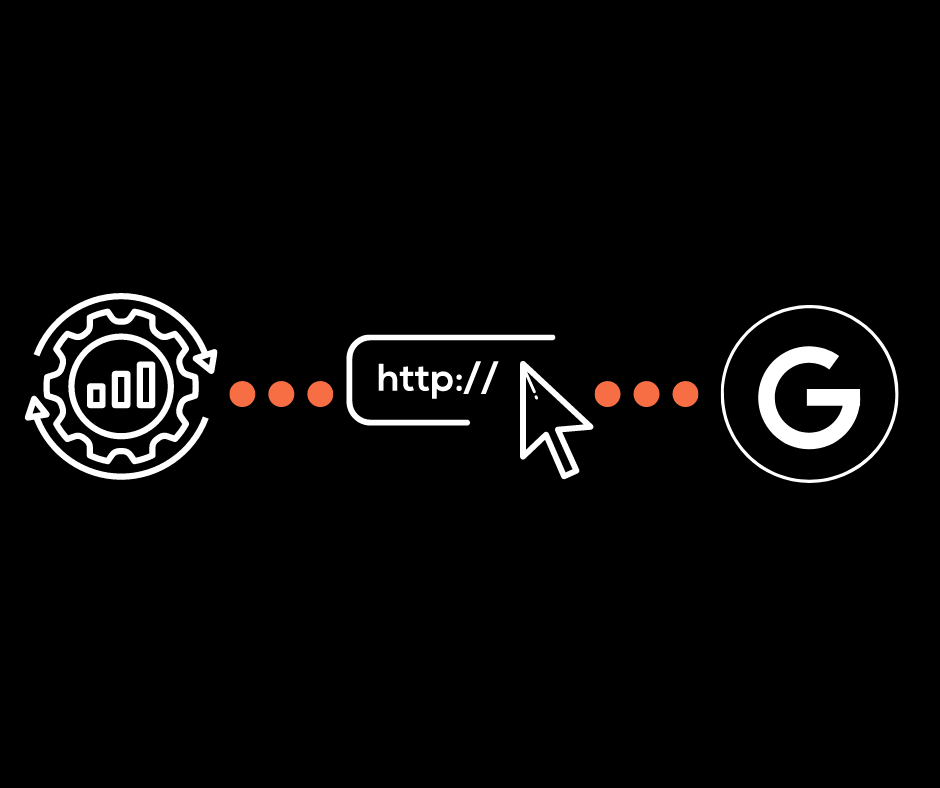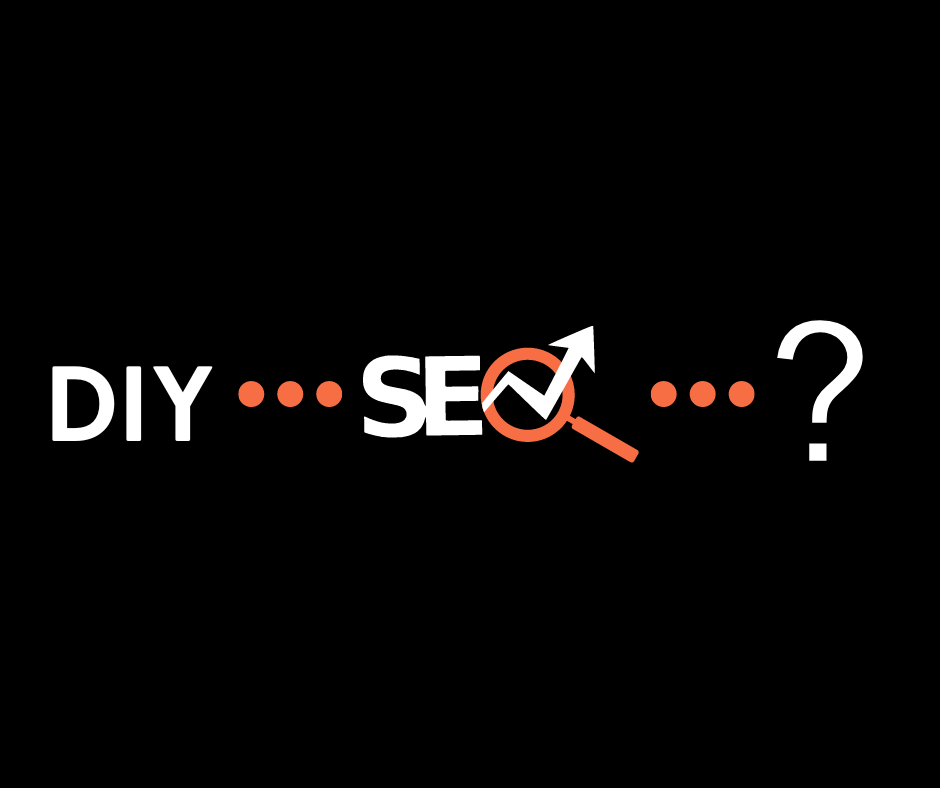Web Design & SEO blog

By Michael Cooper
•
02 Mar, 2023
Do you want your website to show up in search engine results? Do you want to get more visitors and increase your website’s visibility? If so, then this blog post is for you. In it, we’ll cover the basics of optimizing your website for Google and provide tips on how to maximize your SEO efforts. Conduct Market Analysis Conducting market analysis is an important part of optimizing a website for Google. Market analysis helps identify the target audience, understand the competitors, monitor changes in the market, and identify key opportunities to optimize the website. Through market analysis, it is possible to gain insight into the desires and needs of the customers, enabling website optimization strategies to be tailored to provide maximum benefit. Additionally, market analysis can be used to track and analyze changes in customer behavior and preferences over time, helping to ensure that website optimization remains effective. Understand Your Target Audience Understanding your target audience is the first step to optimizing your website for Google. By analyzing demographic information and conducting market research, you can determine the characteristics of your target audience and uncover valuable insights into their needs and wants. Doing so will help you create content and campaigns that are tailored to their interests and more likely to engage them. Additionally, by monitoring changes in the market, you can stay ahead of trends that may affect your target audience’s behavior. Utilizing social insights can also help you understand consumer sentiment towards your brand and industry, providing further insight into what appeals to your target audience. Analyze Your Competitors In order to optimize your website for Google, it is essential to conduct a thorough competitive analysis to understand how your competitors are performing. By analyzing the factual data of your competitors, such as their domain strength, content quality, and keyword density, you can gain insights into their SEO strategies and identify opportunities for improvement. Additionally, you can use tools such as SWOT analysis and keyword gap analysis to compare your website’s performance against that of your competitors. With this information in hand, you can develop strategies that will help you to overtake your rivals and increase your visibility in search engine results. Monitor Changes in the Market Monitoring changes in the market is essential in order to stay ahead of the competition. By looking at industry trends, you can uncover opportunities to gain a competitive advantage. You can use data analysis tools such as Google Analytics to measure your website's performance against competitors and identify areas of improvement. Additionally, you can use other metrics such as page views, time on page, bounce rate and user engagement to gain insights into how your customers are responding to your content. This will help you determine which topics and ideas resonate with your target audience and adjust your content accordingly. Sprinkle Primary and Related Keywords When optimizing a website for search engine results, it is important to sprinkle primary and related keywords throughout the content. Keywords should be chosen based on research into the target audience and market trends. By understanding the needs of your target audience, you can determine which terms are most relevant and effective for your website. Additionally, analyzing your competitors will provide insight into what keywords are performing well for them. Sprinkling primary and related keywords throughout content not only helps to boost search rankings but also ensures that users are being presented with relevant information that meets their needs. Optimize Your Page Titles and Meta Descriptions Optimizing page titles and meta descriptions is a crucial step in any website's SEO strategy . Titles and meta descriptions should include relevant keywords, accurately describe the content of the page, and be written in a way that encourages readers to click on the link. To ensure that these elements are effective, it is important to conduct keyword research, create unique titles and meta descriptions for each page, and ensure that each title and description is accurate and contains the appropriate keywords. Additionally, titles and descriptions should be optimized for both users and search engines. This can be done by including keywords naturally in the title and description, using natural language rather than keyword stuffing, avoiding duplicate content, and adhering to Google’s guidelines for titles and meta descriptions. Sprinkle Primary and Related Keywords Throughout Your Content Sprinkling primary and related keywords throughout your content is a vital part of optimizing your website for Google. When you include these keywords in your content, it helps Google identify what your page is about and how it should be ranked in search results. Make sure to include plenty of context for each keyword so that it can be understood by readers, as well as search engine algorithms. Additionally, make sure the keywords are relevant to the topic of the page you are optimizing, as this will help boost your rankings and improve the user experience. Lastly, remember to place emphasis on the primary keyword, as this should be the focus of the page. Make Sure Your Content is Optimized for both Users and Search Engines It is important to make sure that your content is optimized for both users and search engines. To do this, start by ensuring that your content is relevant to the keywords you are targeting and provide enough context for each keyword. Additionally, use a variety of keywords throughout the content, including both primary and secondary keywords, to ensure that your content is as comprehensive as possible. Finally, sprinkle the keywords throughout the body copy, subheadings, and image alt text to ensure maximum visibility. By optimizing your content for both users and search engines, you can increase your chances of ranking higher on Google's SERP. Register Site with Google Search Console Registering your website with Google Search Console is an important step for optimizing your website for Google. This platform helps you keep track of your site’s indexing status, allowing you to monitor changes and make sure everything on your site is up to date. It also provides insights into how your content is performing on Google, so you can adjust your strategy accordingly and maximize the visibility of your website in search results. Additionally, Search Console can help you ensure that all of your content is properly indexed, so it can be easily found by potential customers. Create Simple Site Navigation Creating an easy-to-navigate website is essential in order to make it easier for both visitors and search engines to find the content they are looking for. To do this, websites should include menus with internal links that make it easy for visitors to find the page that they are looking for. Additionally, websites should also use a hierarchy of headings and prioritize URLs in their navigation bar. This will ensure that both visitors and search engines will have an easy time finding the content they need. Try to Keep WEB Page URL Short To optimize the URL of a website page, it is important to keep it short. This is because Google takes into account the length of the URL when ranking content. URLs should be between 50-60 characters long and should contain no more than three to five words. Additionally, hyphens should be used to separate words in multi-word slugs for posts and pages. It is also important to include keywords in URLs, as this helps Google understand what the page is about and how it relates to other pages on the website. Finally, static URLs should be used for optimal SEO performance. By following these tips, website owners can ensure that their URLs are optimized for better visibility on search engine results pages. Check Robot.txt for Errors Checking robot.txt for errors is an important step in optimizing a website for Google. This document is used to control which web pages search engine spiders can crawl, and if it is not set up properly, search engines may not be able to access your content. Therefore, it is important to review your robots.txt file and make sure it is properly configured before submitting your website to Google Search Console. Checking robot.txt can also help ensure that you are not blocking any important pages by accident, which could lead to search engine visibility issues. Check for Status Code Errors and Correct Them It is important to check for status code errors when optimizing a website for Google. Status codes are returned every time a browser interacts with a server, giving important information about the success or failure of an action. Common status code errors include 404 errors which can result in poor rankings, as they signify bad maintenance. To prevent this, it is important to check the HTTP status codes and use tools such as Google Search Console to identify and fix any potential problems. This will help ensure that your website is up-to-date and functioning properly, improving its overall ranking in search engine results. Check Site Indexing via Google Search Checking your site indexing via Google Search is an important step in optimizing your website for Google. By submitting your website to Google’s Search Console, you can verify which pages have been indexed on the search engine. This helps you to identify any errors or problems that may be preventing your site from being indexed. It is also important to make sure that all URLs are properly indexed and functioning correctly. Additionally, monitoring changes in the market and sprinkling primary and related keywords throughout your content can further help ensure that your website is properly indexed by Google. Conclusion In conclusion, optimizing your website for Google can help your website rank higher in search engine results. It is important to understand your target audience, analyze the market, and research keywords. Additionally, it is important to create optimized page titles, meta descriptions, and content for both users and search engines. Lastly, simple site navigation and short URLs help improve search engine visibility. Following these steps can help increase traffic to your website and improve SEO. I hope this guide has been useful in helping you optimize your website for Google’s search engine. As technology and search engine algorithms continue to evolve, there will only be more opportunities to improve your website’s ranking in the future. Stay tuned for more tips and tricks from WebWorx on how to make sure your website is consistently performing well!

By Michael Cooper
•
07 Feb, 2023
Yes, it is possible to do SEO on your own if you have a solid understanding of the fundamentals and are prepared to put in the time and effort to learn the basics. Researching your target audience and conducting keyword research are key components of SEO. Additionally, creating unique and accurate page titles, optimizing content for search engine algorithms, and building an effective back linking strategy can all help your website rank higher in search engine results pages. However, these activities can be time-consuming and require specialized knowledge , so it may not be a cost-effective solution for small or medium-sized companies.

By Michael Cooper
•
17 Dec, 2022
As 2022 comes to a close, many businesses are revamping their strategies. If you are looking for some new ways to increase sales online these 5 tips may help. It's important to remember that very few become overnight sensations, building a successful business takes time. A slow progression upward can sometimes be frustrating but, taking those first few steps is the most important thing you can do to see the change you want. Here are 5 tips for increasing sales for your online business: Improve your website design and user experience : A well-designed website that is easy to navigate and use can help increase conversions and sales. Make sure your website loads quickly , has a clear call to action and provides a seamless checkout process. Check out our recent blog about ways to improve your website . Offer discounts and promotions: Offering discounts and promotions can be a great way to entice customers to make a purchase. Consider offering special discounts to first-time customers, or promoting limited-time sales to create a sense of urgency. Leverage social media : Social media platforms can be an effective way to reach a wide audience and drive traffic to your website. Consider regularly posting updates about your products and services, as well as engaging with your followers to build a community and increase brand awareness . Utilize email marketing : Email marketing can be an effective way to reach out to your customer base and encourage them to make a purchase. Consider sending newsletters with product updates and promotions, or targeted emails to specific segments of your customer base. Invest in search engine optimization (SEO): SEO is the practice of optimizing your website to rank higher in search engine results. By improving your SEO, you can increase the chances of your website appearing at the top of search results, which can lead to more traffic and sales. To learn more about SEO check out our latest article . I hope these tips were helpful in giving you the encouragement to take your business to the next level in 2023. As always if you need any help with web design or SEO please contact us here , and may you have a Merry Christmas and Happy New Year! -WebWorx Team

By Michael Cooper
•
17 Dec, 2022
Welcome to the complete guide to SEO. Let's start out by defining what SEO is. SEO or search engine optimization is the practice of improving the ranking of a website on search engines like Google . The higher a website ranks, the more likely it is to be seen by users searching for relevant keywords . There are many factors that go into SEO, and it is important to consider all of them when trying to improve the ranking of a website. Some of the most important factors include: Quality/relevance of the content: It should be well-written, informative, and relevant to the topic at hand. It should also be updated regularly to keep users coming back and to show that you as a business owner maintain your website. Structure and organization: A website should be easy to navigate , with a clear hierarchy and logical organization of content. This helps search engines understand the content on the website and improves the chances of it ranking well. External links : Links from other websites to a website can be seen as a vote of confidence by search engines. The more high-quality external links a website has, the more likely it is to rank well. Technical factors : There are also technical factors that can affect a website's ranking, such as the use of header tags, the presence of a sitemap , and the speed at which the website loads. Local SEO is important because it can help to increase the visibility and credibility of a website . By optimizing these and other factors, websites can improve their ranking on search engines and increase the amount of organic traffic they receive. By appearing at the top of search results, a website is more likely to be seen by potential customers or clients. This can lead to increased traffic, sales, and revenue for the website owner. As search engines update their algorithms and the way they evaluate websites, SEO strategies need to change as well. It is important for website owners to stay up-to-date with the latest SEO practices and trends in order to ensure that their website is ranking as highly as possible. This can be done through a combination of on-page optimization, off-page optimization, and tracking the performance of the website through analytics tools . SEO is a critical component of online marketing that helps to improve the ranking of a website on search engines. By optimizing various factors on a website, businesses and individuals can increase their visibility and credibility, resulting in increased traffic and revenue. To find out more about our SEO pricing check out our pricing page . To improve your website check out our latest article . You can stay up-to-date with the latest SEO practices and trends with sites like Search Engine Journal to ensure that your website is performing at its best. To learn more about the SEO services we provide check out this page .

By Michael Cooper
•
13 Dec, 2022
Designing a website for your business can be a worthy investment and if done right can also be your biggest revenue generator . The overall cost can range from a few hundred dollars to tens of thousands of dollars . It will also depend on a number of factors including the size of the site, the level of custom functionality, and how frequently it is updated. One of the biggest factors that will affect the cost of designing a website is the size of the site. Some websites can have hundreds or thousands of pages that require maintenance. Before you get started, try to come up with a structure tree or sitemap of how you want the hierarchy to be built. This will make navigation so much easier as it scales. Another factor in cost is the level of custom functionality . For example, a simple website that provides information about products or services will be far less expensive than a site that includes e-commerce functionality, custom user accounts, or connects to a database. In addition to the cost of the design itself are the recurring costs associated with maintenance . These are typically annual or monthly fees that can apply to hosting, content updates, backups, site security , and any necessary improvements over time. Depending on how frequently new content is added to your site can affect the monthly cost as well. If you're starting out we highly recommend you allocate a good portion of your web design budget/planning towards regularly adding new content . This can be blog posts (like this one), adding more images/videos over time, or updating text about your products or services. It is important for businesses to carefully consider their needs and budget when choosing a design agency or individual designer. By taking the time to research and compare different options, businesses can ensure that they get the best value for their money and end up with a website that effectively meets their needs and helps to grow their business. WebWorx is committed to getting the most return on investment for our client's budgets . If you are in the market for a new website design or not getting the traffic you were promised you can find more information about our web design process here .

By Michael Cooper
•
13 Dec, 2022
Artificial intelligence (AI) is a rapidly growing field with a wide range of applications in many different industries. In the business world, AI has the potential to help organizations in a number of ways . But first let's get the definition of what AI is from one of the fastest-growing and most exciting instances of AI's power: chatGPT . When I asked the chatbot " What the definition of AI was " here was the response: The ability of a computer or machine to perform tasks that typically require human intelligence, such as learning, reasoning, and problem-solving. This involves developing algorithms and software that can mimic human behavior and make decisions based on data. This is pretty incredible considering this task took a total of 15 seconds and it came out with a pretty well-rounded answer. Now let's take a look at what this automation can do for business owners. One of the primary ways AI can help businesses is by automating repetitive and time-consuming tasks . This can free up employees to focus on more important and value-added activities, such as strategy development and customer relationship management. It can also be used to analyze large amounts of data and identify trends and patterns that can provide valuable insights for businesses. For example, AI can be used to analyze customer data to identify buying trends and make personalized product recommendations . Another potential benefit is its ability to improve decision-making . By providing organizations with real-time, accurate information, AI can help businesses make more informed decisions. For example, AI can be used to analyze market trends and make predictions about future demand for products and services. This can help businesses make more strategic decisions about where to allocate resources and how to position themselves in the market. The potential uses for AI in the business world are vast and varied. As technology continues to evolve, we can expect to see even more ways that AI can help businesses in the future .
Visit Author Bio page to learn more about Michael Cooper and his experience with web design and SEO.
Contact Us
9160 Forum Corporate Pkwy
Unit #350
Fort Myers, FL 33905
941-888-0118
info@webworx.agency
Online illustrations by Storyset
© 2024
All Rights Reserved | WebWorx LLC


